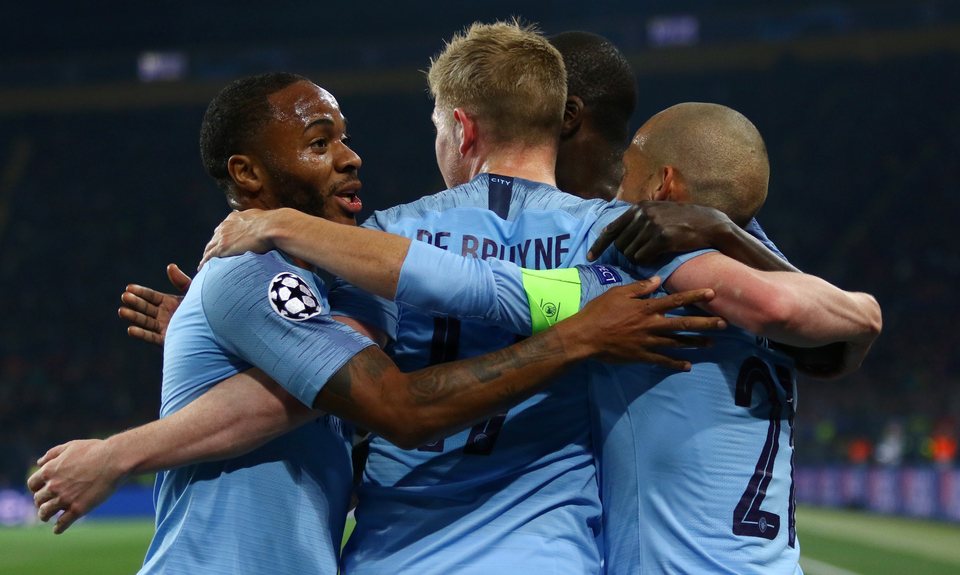Football has entered a new era. Mergers and acquisitions’ one. It offers new opportunities for big clubs and smaller ones, but this represents a new challenge for the sport: what about equity in a business world? The examples of Strasbourg and Malaga offer us some keys to answer the question.
Over the last two decades, mergers and acquisitions (M&A) have become a prominent feature in the football industry. Among the reasons for this are that the industry has been characterized by increasing revenues, as well as increasing competition for limited resources such as players, facilities, and fans. M&A acquisitions provide football clubs with the opportunity to expand their operations, tap into new markets, and gain access to resources that would be otherwise difficult to acquire.
One strategy…
However, owning several clubs can also pose significant risks to shareholders. Prompted by rumors circulating regarding the potential acquisitions of RC Strasbourg and Malaga CF by Todd Boehly (owner of Chelsea F.C) and Qatar Sport Investment (QSI, owner of PSG) respectively, this article analyzes both situations.
…three benefits…
International M&As can present real benefits for acquiring firms through corporate international diversification. Moreover, acquiring abroad can provide the firm with valuable opportunities such as improved technology, risk management and favorable government policies. In the football industry, owning multiple football clubs can deliver other benefits to owners and shareholders.
First, it allows them to tap into new markets, expand a club’s fan base, and generate new revenue streams. Second, it can generate economies of scale, allowing clubs to reduce costs and improve profitability. For example, shared resources such as training facilities, scouting networks, and backroom staff can be used across all clubs, reducing duplication and improving efficiency. Third, it can provide a hedge against risk. If one club is performing poorly, the owner can rely on the performance of the other clubs to offset losses.
…and three challenges
However, these transactions include much more complex characteristics. These features involve differences in cultural and corporate governance norms, political and economic environments, information disclosure and bilateral trade relationships between countries. These disparities can lead to value destruction and lower announcement returns when compared with domestic M&As. Shareholders may face multiple risks when owning multiple clubs. First, this situation can lead to conflicts of interest, particularly if the clubs are competing in the same league or tournament. Owners may be forced to choose between the success of one club or another, potentially leading to biased decision-making.
Read also: Gone with the sand: what will we remember of brand Qatar?
Second, other challenges may include navigating diverse business environments and legal frameworks across different jurisdictions, balancing the expectations and unique cultures of each club’s fanbase, and dealing with the financial burden of managing a club that is not generating profits. Moreover, the use of feeder clubs may result in a loss of support from fans, which can create significant obstacles for the owners.
Third, owning multiple clubs can also lead to regulatory risks. UEFA, the governing body of European football, has strict regulations on club ownership, particularly around conflicts of interest and fair competition. Owners of multiple clubs must ensure that they comply with these regulations, or risk sanctions and fines.
Boehly for Strasbourg?
The potential acquisition of RC Strasbourg and Malaga CF by Ted Boehly and QSI respectively, raises multiple questions regarding the risks and benefits related to these investments.
In the case of RC Strasbourg, it would become Boehly’s second European club after Chelsea F.C. The acquisition of the club would provide him with access to the French football market, potentially allowing him to expand and diversify his operations further in Europe. In addition, buying Strasbourg could provide Chelsea with an easy loan network to help develop their players in the coming years. Regarding the club’s sporting situation, RC Strasbourg has been fluctuating between the 15th and 6th positions in Ligue 1 since their return to topflight football in 2017. The club also won the French league cup during the season 2018-2019. Moreover, RC Strasbourg appears to be in good financial standing, as evidenced by the statement made by the club’s president, Marc Keller, on March 3rd, 2023: “The stadium is sold out, the refreshment stands are running at full capacity, and all the boxes are sold. We have reached the ceiling of the economic development that we can hope for”.
The club has once again passed its DNCG (National Directorate of Control and Management) audit without any issues or restrictions, as has been the case in recent years. The budget for the next season has a projected revenue of just under 50 million euros.
However, acquiring RC Strasbourg can also present some challenges. First, owning multiple European football clubs may put the clubs on UEFA’s radar. In particular, UEFA does not support multi-club ownership and has rules in place to prevent it. Second, RC Strasbourg is a French club with a distinct culture and way of doing things. Boehly’s lack of experience in European football and French football in particular could complicate things. Third, Strasbourg’s supporters may not have forgotten about the club’s history with American owners IMG-McCormack. Disappointing results led to very difficult times at the Meinau stadium, particularly between players and supporters.
Qatar on the road to Andalusia
As for the potential acquisition of Malaga CF by QSI, the situation differs from the first case. QSI owns PSG and have a minority stake in Portuguese club Braga. Reports state that the Qatari group is determined to buy or invest in more clubs this year. Acquiring Malaga FC would present several benefits for QSI. First, the acquisition of Malaga CF could provide an entry point for QSI into the Spanish football market, which is one of the most prominent and lucrative football markets in the world. Given the popularity of Spanish football and the club’s historical significance, the acquisition of the club could enhance QSI’s global brand and reputation. Second, Malaga FC’s strategic location in Andalusia, Southern Spain, could provide an opportunity for QSI to develop a network of football clubs in the region and establish a presence in the wider European market. Third, the acquisition could offer QSI access to a significant fan base and a strong youth academy with a rich history of producing talented players, which could provide a significant source of future revenue and attract new fans.
Despite the potential benefits, there are several reasons that QSI should consider before acquiring the football club. First, similarly to the previous case, UEFA might target QSI for possibly possessing several clubs. The Qatari group could also be targeted by Javier Tebas (La Liga president) who has been critical of PSG’s spending on multiple occasions. Second, Malaga FC has been struggling with on-field performance and results in recent years (they have been playing in the Spanish second division since 2018), which may impact the club’s ability to generate revenue from sponsorships, broadcasting rights, and ticket sales. Additionally, The Spanish football market is highly concentrated with only a small number of clubs dominating the league, making it challenging for smaller clubs like Malaga FC to compete. Third, there may also be resistance from fans and the local community to this Qatari ownership, especially given the economic and sporting problems faced by the club under its existing Qatari owner, businessman Sheikh Abdullah Al Thani.
Football is business
In both cases, the potential acquirers are looking to diversify their operations further in new markets in Europe. The main difference between the two cases is the profile of the target clubs. Strasbourg RC is a mid-sized club in France’s Ligue 1, while Malaga CF is a smaller club in Spain’s Segunda Division. This means that the potential benefits and risks of the M&A are different in each case. Additionally, Boehly is a private investor, while QSI is owned by the Qatari government, which could have implications for regulatory challenges and public perception of the acquisition.
In conclusion, while M&A acquisitions in the football industry can present numerous benefits to owners and shareholders, such transactions also carry significant risks. These risks include regulatory challenges, conflicts of interest, and navigating diverse business environments and legal frameworks across different jurisdictions. The potential acquisitions of RC Strasbourg by Todd Boehly and Malaga CF by QSI highlight the complexities of owning multiple clubs, with both situations posing unique challenges and potential benefits. Ultimately, owners must carefully consider the risks and benefits before pursuing such acquisitions to ensure long-term success and profitability.
Footnote: this article draws upon research undertaken by Julien Farhat, which examined executives’ risk-taking behaviours related to cross-border M&As.






